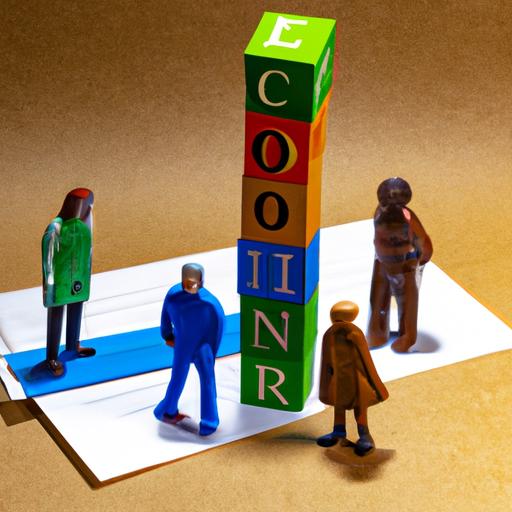Introduction
In our fast-paced world, it’s easy to overlook the significance of mental health. Yet, it plays a vital role in our overall well-being. After all, a healthy mind is the foundation for a fulfilling life. But how do we nurture our mental well-being? One powerful and often underestimated tool is socializing.
The Importance of Mental Health and its Impact on Overall Well-being
Mental health encompasses our emotional, psychological, and social well-being. It affects how we think, feel, and act, ultimately shaping our ability to handle stress, relate to others, and make choices. When our mental health suffers, it can disrupt every aspect of our lives, hindering our ability to enjoy relationships, pursue passions, and achieve our goals.
The Role of Socializing in Maintaining Good Mental Health
Socializing provides a platform for connection, engagement, and support, all of which are crucial for maintaining good mental health. As social beings, we thrive on interactions, whether they are with close friends, family members, or even acquaintances. Socializing allows us to share our joys, concerns, and experiences, fostering a sense of belonging and helping us navigate life’s challenges.
When we engage in meaningful conversations, laughter-filled gatherings, or simply spend quality time with loved ones, our mental well-being reaps the benefits. Socializing acts as a protective shield against feelings of loneliness, isolation, and depression. It lifts our spirits, boosts self-esteem, and provides us with a support system that can help us cope with difficulties.
But is socializing truly as impactful as it sounds? Can it genuinely improve our mental health and enhance our overall well-being? In the following sections, we will explore the various ways socializing benefits our mental health. From there, we will delve into how social interaction can positively impact specific mental health disorders. So, let’s embark on this journey together and discover the power of socializing for our minds.
Understanding Mental Health
Definition of Mental Health and its Various Aspects
Mental health refers to the state of our emotional, psychological, and social well-being. It encompasses how we perceive ourselves, handle stress, form relationships, and make choices. A sound mental health enables us to navigate life’s challenges, cope with stress effectively, and maintain a sense of balance and resilience.
Within the realm of mental health, various aspects come into play. Emotional well-being involves recognizing and managing our emotions in a healthy manner, fostering positive self-esteem, and maintaining a sense of optimism. Psychological well-being encompasses cognitive abilities, problem-solving skills, and the ability to adapt to changing circumstances. Social well-being refers to the quality of our relationships, the support we receive, and the level of connection and belonging we experience.
Common Mental Health Disorders and their Prevalence
Mental health disorders are prevalent worldwide, affecting people of all ages, genders, and backgrounds. According to the World Health Organization (WHO), approximately 1 in 4 individuals will experience a mental health disorder at some point in their lives. These disorders can range from mild to severe and may have a significant impact on daily functioning and overall well-being.
Some common mental health disorders include:
-
Depression: A mood disorder characterized by persistent sadness, loss of interest, and a general lack of enjoyment in activities. Depression affects over 264 million people globally.
-
Anxiety Disorders: These disorders involve excessive worry, fear, and apprehension. Conditions such as generalized anxiety disorder, panic disorder, and social anxiety disorder fall under the umbrella of anxiety disorders.
-
Bipolar Disorder: This disorder is marked by extreme shifts in mood, energy levels, and activity levels. Individuals with bipolar disorder may experience periods of intense mania followed by episodes of depression.
-
Schizophrenia: A chronic mental disorder that affects a person’s perception of reality. It often involves hallucinations, delusions, disorganized thinking, and difficulty in social interaction.
-
Post-Traumatic Stress Disorder (PTSD): PTSD can develop after a person experiences or witnesses a traumatic event. Symptoms may include flashbacks, nightmares, and severe anxiety.
Understanding these common mental health disorders and their prevalence helps us grasp the magnitude of the challenges many individuals face. By recognizing the importance of mental health and the impact of socializing, we can begin to explore how social interactions can contribute to improved mental well-being. Let’s continue our exploration in the next section.
The Benefits of Socializing for Mental Health
Social Interaction as a Natural Human Need
As social beings, we have an inherent need for connection and interaction with others. It is ingrained in our DNA. Just like we need food and water to survive physically, socializing is crucial for our mental and emotional well-being. It satisfies our innate desire for companionship and belonging, providing us with a sense of purpose and fulfillment.
Positive Effects of Socializing on Mental Health
Engaging in social activities has numerous positive effects on our mental health. When we socialize, our brains release feel-good chemicals like oxytocin, dopamine, and serotonin. These neurotransmitters contribute to feelings of happiness, pleasure, and relaxation, effectively reducing stress and anxiety. Socializing also stimulates our minds, enhancing cognitive function and sharpening our mental acuity.
Furthermore, social interactions provide opportunities for personal growth and self-discovery. Through conversations and shared experiences, we gain new perspectives, broaden our horizons, and develop a deeper understanding of ourselves and others. This can lead to increased self-confidence, improved communication skills, and a heightened sense of empathy and compassion.
Boosting Self-esteem and Reducing Feelings of Loneliness or Isolation
One of the most significant benefits of socializing is its positive impact on self-esteem. When we connect with others and feel accepted, valued, and understood, it boosts our confidence and self-worth. Socializing fosters a sense of belonging, reminding us that we are not alone in our struggles or triumphs. It creates a support network that provides emotional validation, encouragement, and reassurance during challenging times.
Moreover, socializing acts as a powerful antidote to feelings of loneliness and isolation. These emotions can be detrimental to our mental health, leading to increased risk of depression, anxiety, and other mental health disorders. By engaging in social activities, we cultivate meaningful relationships and forge connections that combat these feelings. Socializing helps us build a sense of community and belonging, ensuring that we have a support system to rely on when we need it most.
In the next section, we will explore how socializing can positively impact individuals with specific mental health disorders. Let’s uncover the transformative power of social interaction in managing and improving mental well-being.
Socializing and Mental Health Disorders
Socializing as a Potential Coping Mechanism for Individuals with Mental Health Disorders
For individuals dealing with mental health disorders, socializing can serve as a powerful coping mechanism. Engaging in social activities provides an opportunity to distract oneself from negative thoughts and emotions, offering a respite from the challenges posed by their condition. By connecting with others, individuals can find solace, understanding, and a sense of belonging that can alleviate the burden they carry.
Socializing can also provide a platform for individuals to share their experiences and learn from others who have faced similar struggles. It allows them to gain insights, coping strategies, and support from individuals who can empathize with their journey. The shared experiences within a supportive social network can help individuals navigate their mental health challenges more effectively.
The Impact of Social Support on Managing Mental Health Conditions
Social support plays a crucial role in managing mental health conditions. Having a network of supportive friends, family, or peers can provide a sense of comfort and reassurance. Social connections offer individuals a safe space to express their emotions, seek advice, and receive encouragement. This support system can significantly impact their ability to cope with their condition, reducing the feelings of isolation and enhancing their overall well-being.
Research has consistently shown that higher levels of social support are associated with better mental health outcomes. A study published in the Journal of Abnormal Psychology found that social support acts as a buffer against the negative effects of stress on mental health. It can reduce symptoms of anxiety, depression, and improve overall psychological well-being.
Examples of Mental Health Disorders Positively Affected by Socializing
Several mental health disorders can benefit from socializing. For instance, individuals with anxiety disorders may find that engaging in social activities gradually reduces their anxiety levels and helps them build confidence in social interactions. Similarly, individuals with depression can experience a boost in mood through the positive social connections they establish.
Moreover, socializing can be particularly beneficial for individuals with conditions such as schizophrenia or bipolar disorder. It provides them with a sense of normalcy, reduces feelings of alienation, and helps them develop their social skills. By engaging in social activities, individuals can challenge the limitations imposed by their conditions and regain a sense of control over their lives.
In the next section, we will explore strategies to incorporate socializing into our daily lives, regardless of our personality traits or preferences. So, let’s dive in and discover how we can make socializing a part of our mental health regimen.
Strategies for Incorporating Socializing into Daily Life
Overcoming Barriers to Socialization
Socializing can be challenging for many individuals due to various barriers. It’s important to identify and address these barriers to fully embrace the benefits of social interaction. Here are a few strategies to overcome common barriers:
-
Time Constraints: In our busy lives, finding time for socializing can be difficult. Prioritize social activities by scheduling them into your routine. Set aside specific time slots for socializing, whether it’s meeting friends for coffee or attending social events.
-
Fear of Rejection: The fear of being rejected or judged can hinder social interactions. Remember, everyone experiences moments of vulnerability, and not every interaction will be perfect. Embrace the possibility of rejection as a part of life and focus on the positive connections you can make.
-
Lack of Confidence: Low self-esteem can make socializing intimidating. Boost your confidence by engaging in activities you enjoy and excel at. Surround yourself with supportive individuals who appreciate and value your presence.
Tips for Introverts or Socially Anxious Individuals to Engage in Social Activities
Introverts and socially anxious individuals may find socializing particularly challenging. However, with a few tips, they can step out of their comfort zones and reap the benefits of social interaction:
-
Start Small: Begin by socializing in smaller, more intimate settings. Meet up with a close friend for a one-on-one conversation or join a small group with shared interests. Gradually increase your comfort level by exposing yourself to larger gatherings.
-
Prepare Ahead: If social situations make you anxious, prepare yourself beforehand. Plan conversation starters or topics of interest to ease into discussions. Having a few talking points in mind can boost your confidence and make socializing more enjoyable.
-
Take Breaks: It’s important to recognize your limits and take breaks as needed. Excusing yourself for a few minutes during social gatherings can provide moments of solitude to recharge and regroup.
Utilizing Technology for Socializing Purposes
In today’s digital age, technology offers a wide range of opportunities for socializing, making it more accessible and convenient. Here are some ways to leverage technology for social interactions:
-
Social Media: Engage in online communities and groups that align with your interests. Join discussions, share experiences, and connect with like-minded individuals. However, be mindful of the time spent on social media and maintain a healthy balance.
-
Video Calls: Utilize video calling platforms to connect with friends and family who may be far away. Video calls can provide a more personal and meaningful connection, bridging the distance and fostering a sense of togetherness.
-
Online Classes or Clubs: Explore online classes or clubs that cater to your hobbies or interests. Participating in virtual workshops or joining online clubs allows you to connect with individuals who share your passions, even from the comfort of your own home.
By incorporating these strategies and leveraging technology, you can overcome barriers, step out of your comfort zone, and embrace the power of socializing in your daily life. Remember, small steps can lead to significant positive changes in your mental health and overall well-being.
Conclusion
In conclusion, socializing is not just a pleasant pastime; it is an essential ingredient for good mental health. The impact of social interactions on our well-being cannot be overstated. By engaging in meaningful connections, we foster a sense of belonging and support that can help us navigate life’s challenges. The positive effects of socializing extend beyond mere enjoyment; they have a profound impact on our mental well-being.
Through socializing, we can boost our self-esteem, reduce feelings of loneliness and isolation, and gain a support system that can help us cope with difficulties. It acts as a protective shield against mental health disorders and enhances our overall well-being. Whether it’s a heart-to-heart conversation, a friendly gathering, or simply spending time with loved ones, socializing offers us a powerful tool to nurture our mental health.
As we strive to prioritize our mental well-being in today’s busy world, let us not overlook the importance of socializing. It is through these connections that we find solace, understanding, and a sense of belonging. So, reach out to friends, join social groups, and make time to connect with others. Your mental health will thank you!
Remember, taking care of your mental health is not a luxury; it is a necessity. By embracing socializing as an integral part of your self-care routine, you are investing in your overall well-being. So, go ahead, cultivate those connections, and let the power of socializing work its magic on your mental health. You deserve it.
“Social connections are the keys to our longevity and happiness.” – Michelle Obama



